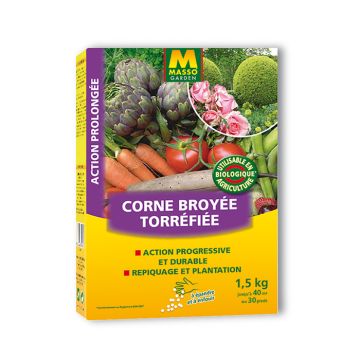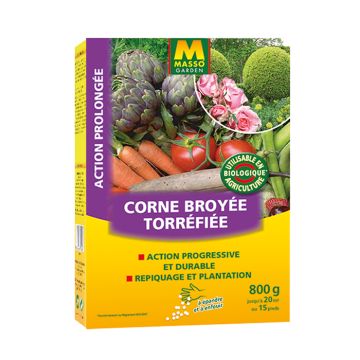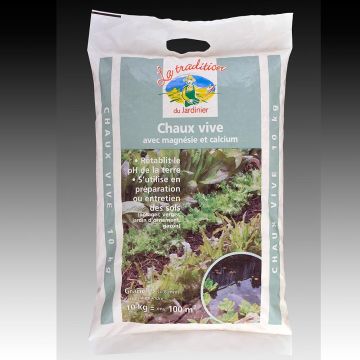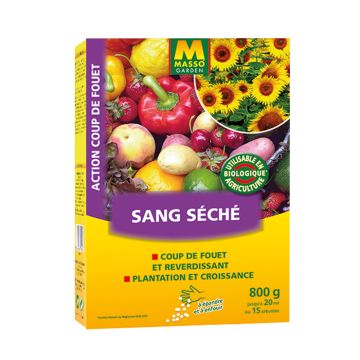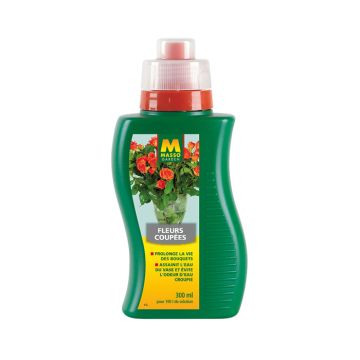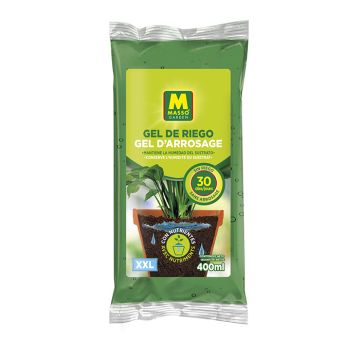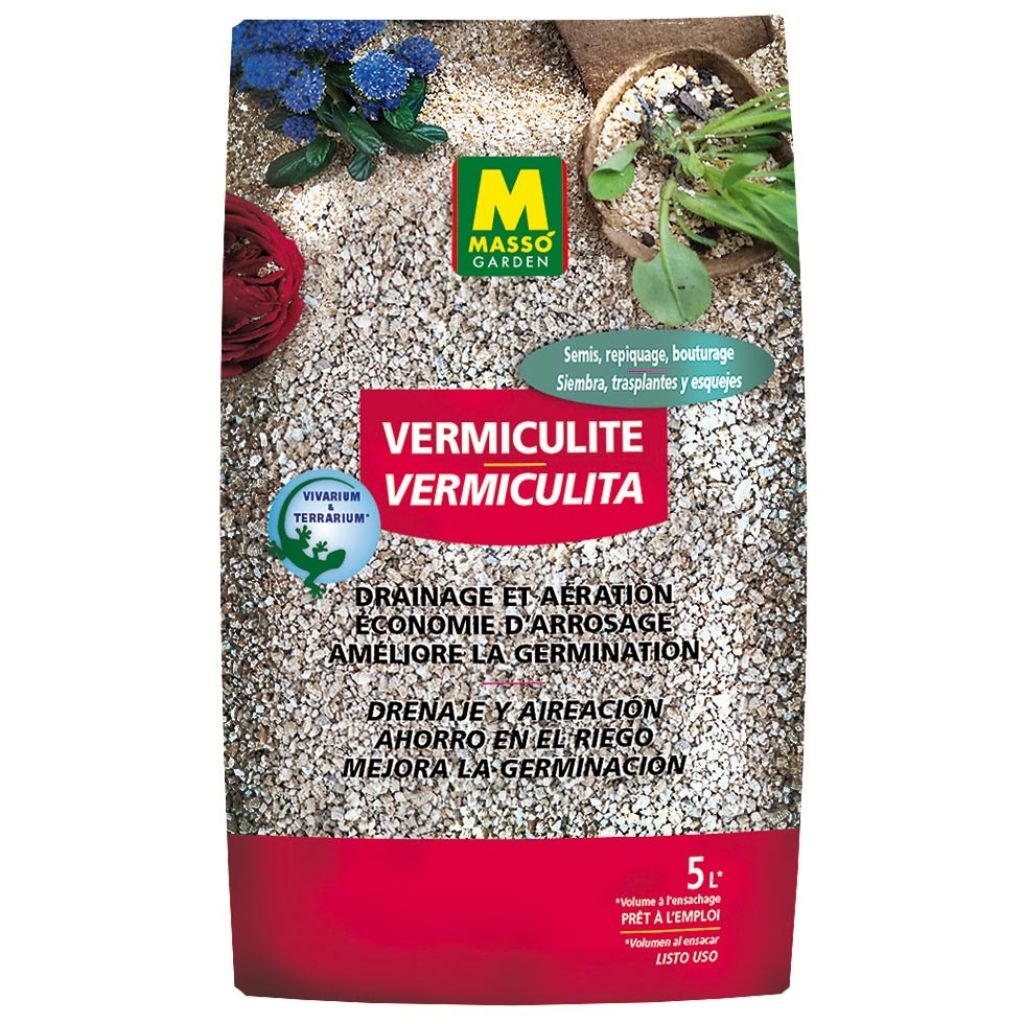

Masso Garden vermiculite in 5 litre bags
Masso Garden vermiculite in 5 litre bags
Special offer!
Receive a €20 voucher for any order over €90 (excluding delivery costs, credit notes, and plastic-free options)!
1- Add your favorite plants to your cart.
2- Once you have reached €90, confirm your order (you can even choose the delivery date!).
3- As soon as your order is shipped, you will receive an email containing your voucher code, valid for 3 months (90 days).
Your voucher is unique and can only be used once, for any order with a minimum value of €20, excluding delivery costs.
Can be combined with other current offers, non-divisible and non-refundable.
Home or relay delivery (depending on size and destination)
Schedule yourself the delivery date,
and choose your date in cart
We guarantee the quality of our plants for a full growing cycle, and will replace at our expense any plant that fails to recover under normal climatic and planting conditions.

The Masso Garden vermiculite is a material derived from the thermal treatment of natural volcanic minerals. It is made of small, beige, blown and layered fragments, slightly shiny and extremely light, with exciting physical and chemical qualities in gardening. It allows lightening and improves the drainage of the plants' substrate, promotes germination and rooting, releases elements beneficial for plant growth, and retains water to gradually release it to the roots. Vermiculite can be used in pure or mixed form with potting soil.
Vermiculite, a 100% mineral in origin, is a volcanic rock composed of hydrated aluminium silicate, related to micas, rich in iron and magnesium. Heated to very high temperatures (1000°C), this mineral suddenly releases the water it contains and the layers that make it up separate, causing an increase in its volume. Vermiculite deposits are mainly found in the USA and South Africa, from where they are imported to Europe. It is an imputrescible substance, often neutral in pH, very light, hydrophilic, non-combustible, and an excellent thermal insulator. However, these blown particles are unstable and tend to compact over time, causing the substrate to shrink and potentially become suffocating for the roots.
Characteristics / physicochemical properties of vermiculite:
- This chemically active material can store and redistribute minerals beneficial to plants, such as iron, potassium, and magnesium, and exchange them for less desirable minerals.
- The pH of Masso Garden vermiculite is 7.4, close to neutrality.
- Very light, it weighs about 120 kg per cubic metre.
- It retains several times its weight in water but remains moderately available to the plant.
- Its particle size here is from 0 to 4 mm in diameter.
- It does not contain any asbestos residue.
Vermiculite in gardening:
- Promotes seed germination.
- Stimulates the growth of young plants.
- It provides good aeration, creating a favourable environment for root development.
- Not conducive to the development of mould and fungi.
- Lightens the substrate, making it easier to handle and move pots and flower boxes.
- Regulates humidity, partially compensating for watering neglect.
Vermiculite is generally mixed with potting soil and peat in 20 to 50% proportions, depending on the desired outcome. It can be used as a mixture in flower pots or temporarily on its own, especially when sowing or propagating plants that are very sensitive to excess moisture and soil fungi. It is also found in green roofs. Some plants, such as bonsai, cacti, and palm trees, thrive particularly well in vermiculite soil.
Perlite and vermiculite are similar materials that can be used together, and their respective qualities create an interesting synergy. These raw materials are abundant but not renewable, and they consume a lot of energy in their production and importation. Therefore, it is important to use them responsibly and in moderation, especially for delicate sowing or propagating operations. Moreover, these materials are often used in ready-to-use potting soils for sowing and propagation.
Uses and Benefits
Features
Directions for use
Other Soil Amendments
View All →-
, onVetted order
Response from on Promesse de fleurs
You have not found what you were looking for?
Hardiness (definition)

Photo Sharing Terms & Conditions
In order to encourage gardeners to interact and share their experiences, Promesse de fleurs offers various media enabling content to be uploaded onto its Site - in particular via the ‘Photo sharing’ module.
The User agrees to refrain from:
- Posting any content that is illegal, prejudicial, insulting, racist, inciteful to hatred, revisionist, contrary to public decency, that infringes on privacy or on the privacy rights of third parties, in particular the publicity rights of persons and goods, intellectual property rights, or the right to privacy.
- Submitting content on behalf of a third party;
- Impersonate the identity of a third party and/or publish any personal information about a third party;
In general, the User undertakes to refrain from any unethical behaviour.
All Content (in particular text, comments, files, images, photos, videos, creative works, etc.), which may be subject to property or intellectual property rights, image or other private rights, shall remain the property of the User, subject to the limited rights granted by the terms of the licence granted by Promesse de fleurs as stated below. Users are at liberty to publish or not to publish such Content on the Site, notably via the ‘Photo Sharing’ facility, and accept that this Content shall be made public and freely accessible, notably on the Internet.
Users further acknowledge, undertake to have ,and guarantee that they hold all necessary rights and permissions to publish such material on the Site, in particular with regard to the legislation in force pertaining to any privacy, property, intellectual property, image, or contractual rights, or rights of any other nature. By publishing such Content on the Site, Users acknowledge accepting full liability as publishers of the Content within the meaning of the law, and grant Promesse de fleurs, free of charge, an inclusive, worldwide licence for the said Content for the entire duration of its publication, including all reproduction, representation, up/downloading, displaying, performing, transmission, and storage rights.
Users also grant permission for their name to be linked to the Content and accept that this link may not always be made available.
By engaging in posting material, Users consent to their Content becoming automatically accessible on the Internet, in particular on other sites and/or blogs and/or web pages of the Promesse de fleurs site, including in particular social pages and the Promesse de fleurs catalogue.
Users may secure the removal of entrusted content free of charge by issuing a simple request via our contact form.
The flowering period indicated on our website applies to countries and regions located in USDA zone 8 (France, the United Kingdom, Ireland, the Netherlands, etc.)
It will vary according to where you live:
- In zones 9 to 10 (Italy, Spain, Greece, etc.), flowering will occur about 2 to 4 weeks earlier.
- In zones 6 to 7 (Germany, Poland, Slovenia, and lower mountainous regions), flowering will be delayed by 2 to 3 weeks.
- In zone 5 (Central Europe, Scandinavia), blooming will be delayed by 3 to 5 weeks.
In temperate climates, pruning of spring-flowering shrubs (forsythia, spireas, etc.) should be done just after flowering.
Pruning of summer-flowering shrubs (Indian Lilac, Perovskia, etc.) can be done in winter or spring.
In cold regions as well as with frost-sensitive plants, avoid pruning too early when severe frosts may still occur.
The planting period indicated on our website applies to countries and regions located in USDA zone 8 (France, United Kingdom, Ireland, Netherlands).
It will vary according to where you live:
- In Mediterranean zones (Marseille, Madrid, Milan, etc.), autumn and winter are the best planting periods.
- In continental zones (Strasbourg, Munich, Vienna, etc.), delay planting by 2 to 3 weeks in spring and bring it forward by 2 to 4 weeks in autumn.
- In mountainous regions (the Alps, Pyrenees, Carpathians, etc.), it is best to plant in late spring (May-June) or late summer (August-September).
The harvesting period indicated on our website applies to countries and regions in USDA zone 8 (France, England, Ireland, the Netherlands).
In colder areas (Scandinavia, Poland, Austria...) fruit and vegetable harvests are likely to be delayed by 3-4 weeks.
In warmer areas (Italy, Spain, Greece, etc.), harvesting will probably take place earlier, depending on weather conditions.
The sowing periods indicated on our website apply to countries and regions within USDA Zone 8 (France, UK, Ireland, Netherlands).
In colder areas (Scandinavia, Poland, Austria...), delay any outdoor sowing by 3-4 weeks, or sow under glass.
In warmer climes (Italy, Spain, Greece, etc.), bring outdoor sowing forward by a few weeks.






























